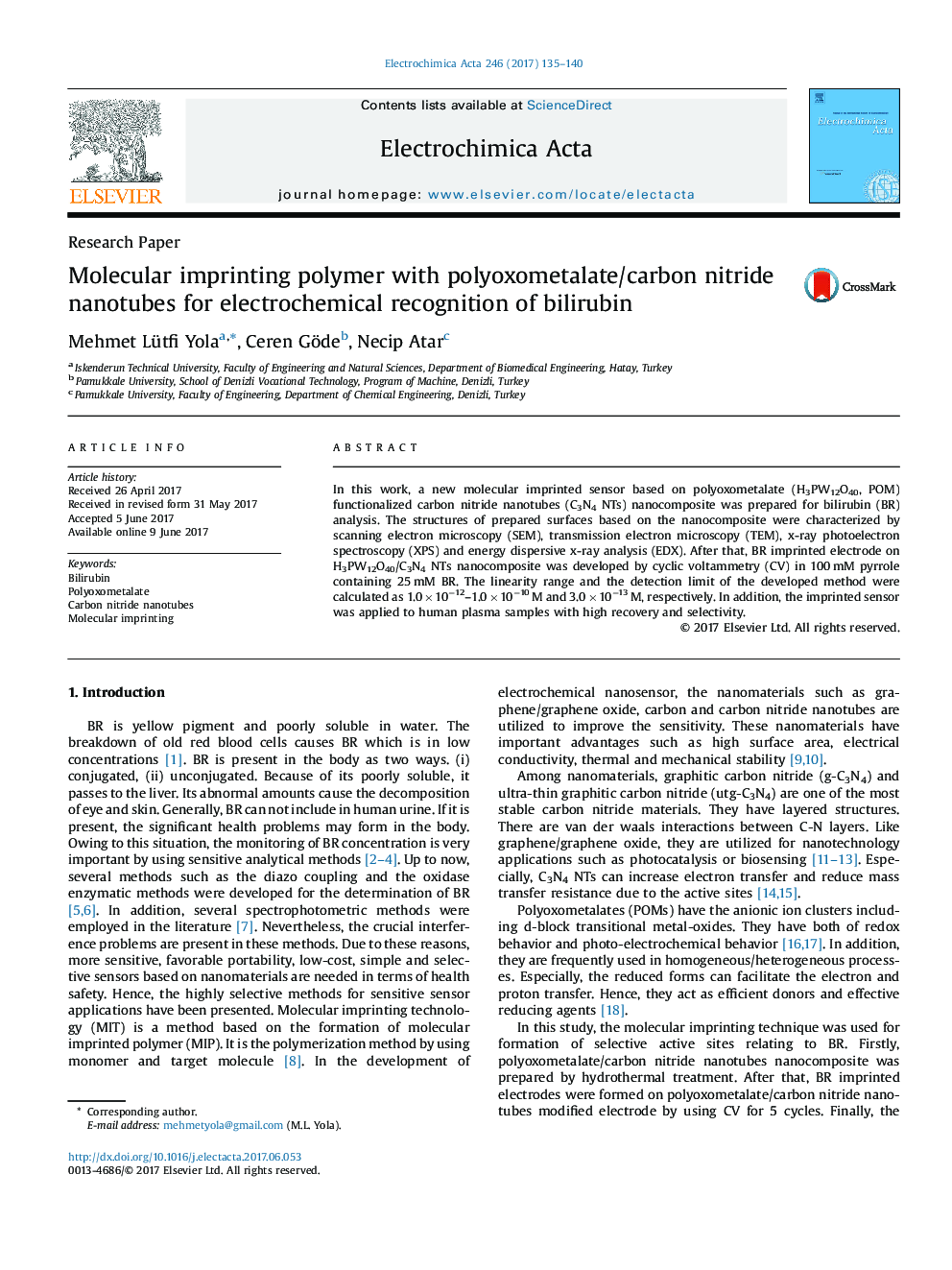| Article ID | Journal | Published Year | Pages | File Type |
|---|---|---|---|---|
| 6470414 | Electrochimica Acta | 2017 | 6 Pages |
â¢Bilirubin-imprinted sensor is developed for the sensitive detection of bilirubinâ¢The prepared based on nanocomposite were characterized by several methods.â¢Bilirubin-imprinted sensor offers the important advantagesâ¢Bilirubin-imprinted sensor is preferred to the other methods for analysis
In this work, a new molecular imprinted sensor based on polyoxometalate (H3PW12O40, POM) functionalized carbon nitride nanotubes (C3N4 NTs) nanocomposite was prepared for bilirubin (BR) analysis. The structures of prepared surfaces based on the nanocomposite were characterized by scanning electron microscopy (SEM), transmission electron microscopy (TEM), x-ray photoelectron spectroscopy (XPS) and energy dispersive x-ray analysis (EDX). After that, BR imprinted electrode on H3PW12O40/C3N4 NTs nanocomposite was developed by cyclic voltammetry (CV) in 100Â mM pyrrole containing 25Â mM BR. The linearity range and the detection limit of the developed method were calculated as 1.0Â ÃÂ 10â12-1.0Â ÃÂ 10â10Â M and 3.0Â ÃÂ 10â13Â M, respectively. In addition, the imprinted sensor was applied to human plasma samples with high recovery and selectivity.
